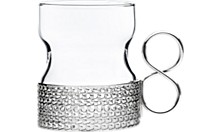Hi,
History of Finland's origin in a nutshell and a quick look into present day.
Where do the Finns come from? Finland's early history is quite fascinating.8000BC tribes from eastern Europe settle our Arctic cost. Around 8600BC people start moving from south, south-east and south-west Europe towards the Finnish coast. As from 4000BC our ancestors who spoke different forms / dialects of Finnish have been living in Finland. Around 2800BC more Baltic people move to the north and now Finnish language and Sami language separate.
1600BC Central European culture (Germanic) influence starts, some trading with Sweden also starts and from the east, Volga area, textile influence arrives in Finland. This time the Sami population spreads to mid Scandinavian area.
400AD - 500AD southern Pohjanmaa is no doubt the richest area at the time and stands out. More Finns from Baltic move over to settle in Finland. The Sami population move more north. It is believed that also more people from central Europe are moving to Finland. Sweden has more influence on western coastal areas.
Around 800AD is Viking period. People from Kainuu ( = Pohjanmaa ) area are known to go on battle trips to Norway robbing and raiding. This is mentioned in Alfred I's Book of World History. Around mid 1000AD Christianity start taking hold. People start moving towards Carelia. By mid 1150 most of the western Finland is Cristian, pagan rituals still exist in mid and northern parts.
1042AD Vladimar, Russian Duke of Novgorod attacks Carelia and 1150AD Anud son of Swedish King Emund attacks western coast. He is beaten and he dies during the attack. Again 1123AD Duke of Novgorod, now Vsevolod attacks Carelia but is beaten. Year 1143AD Novgorod forces attack western Finland but they are beaten.
1154AD Arabic scientist Al-Idrisi writes that Finnish (Fymark) king owns land in Norway.1200AD Saxo Grammaticus, Danish historian, also writes about Finnish kings.1202 the Danes try to invade Finland.
Through various crusades, invasions and attacks Finland becomes province of Sweden 1362. 1523 Mikael Agricola introduces the Lutheran faith from Germany .He translates the Bible and thus forms the basis of the Finnish literary language. Year 1595 25-year old war with Russia ends and eastern border stretches to the Arctic coast.
Beautiful map.
Antonio Millo:Toto el discoperto in carta marina in piano Venice 1582
British Library Add MS27470
Source:Magnificent Maps ,Power, Propaganda and Art/ Peter Barber & Tom Harper
Cornelis Claesz /Johannes Janssonius,Europa
Amsterdam 1617
British Library Maps S.T.E
Source:Magnificent Maps ,Power, Propaganda and Art/ Peter Barber & Tom Harper
1640 Turku University is established. 1714-21 Russia attacks Sweden and occupies Finland. The Tsar returns much of Finland but keeps Eastern Carelia. 1807 Tsar Alexander I attacks Finland again and 1809 Finland becomes an autonomous Grand Duchy of Russia.
6.12.1917 Finland declares Independence from the new Soviet Union. Mr P. E Svinhufvud is elected Finland's first president.1922 The Aland Islands are ceded to Finland and granted autonomy.
1939-1940 There is Winter War between Finland and Russia due to Soviet territorial demands. 1940 Finland is forced to surrender 11% of its territory to the Soviet Union. 1941 the war continues and Hitler begins his Russian campaign. 1944 A peace treaty is signed and Finland has to give up the Petsamo region.
1952 Finland is part of Nordic Council and hosts the Summer Olympics. 1955 Finland is admitted to the United Nations.1995 Finland joins the European Union. Year 2000 Helsinki celebrates its 450th anniversary, it is also one of nine European Cities of Culture.
Mrs Tarja Halonen becomes the first female president.
President today is Mr Sauli Niinisto who took office in March 2012.There are 5,5 million Finns.75% are Lutheran and 1% Orthodox.89,3% speak Finnish and 5.3% Swedish. 81%have completed upper secondary education and 37% have university qualification which is the highest % in the EU countries.
Manufacturing : Metal and engineering 48%, other manufacturing 23% , forest products 15% and food & textiles 14%.
Adjusted purchasing power (EUR)
Norway 49,200
Denmark 32,100
Sweden 32,700
Finland 28,700
France 27,800
UK 27,200
Germany 32,000
Information from the below sources:
Magnificent Maps Power, Propaganda and Art /The British Library
Peter Barber and Tom Harper
 en.wikipedia.org/wiki/Moomin
en.wikipedia.org/wiki/Moomin 















 Icebreaker Sisu/photo Arctic Shipping
Icebreaker Sisu/photo Arctic Shipping









.jpg)